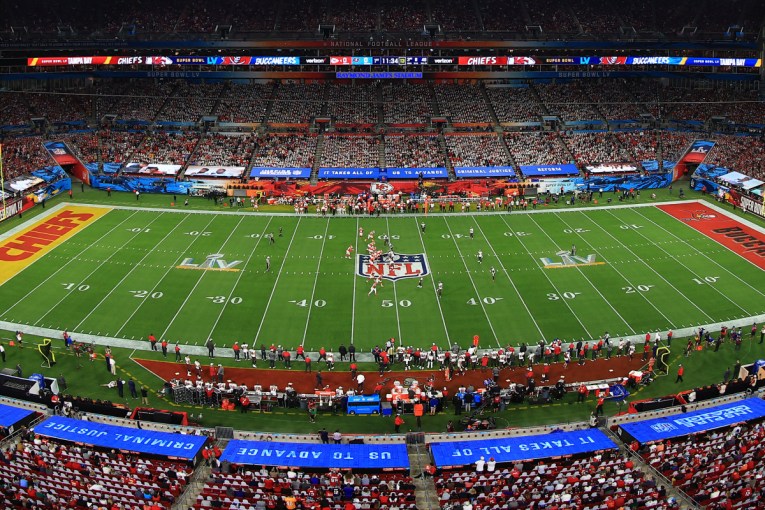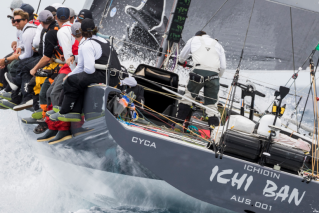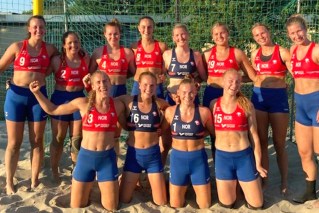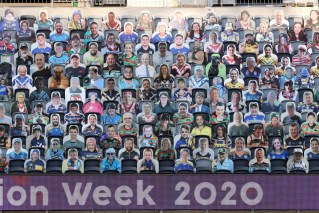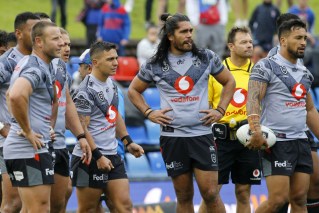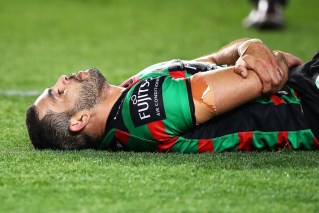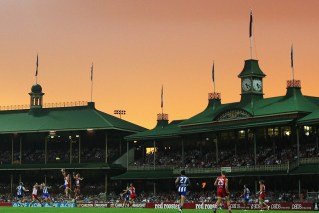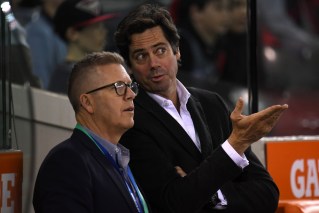Aker, Leigh and Lane are wrong on Hunt
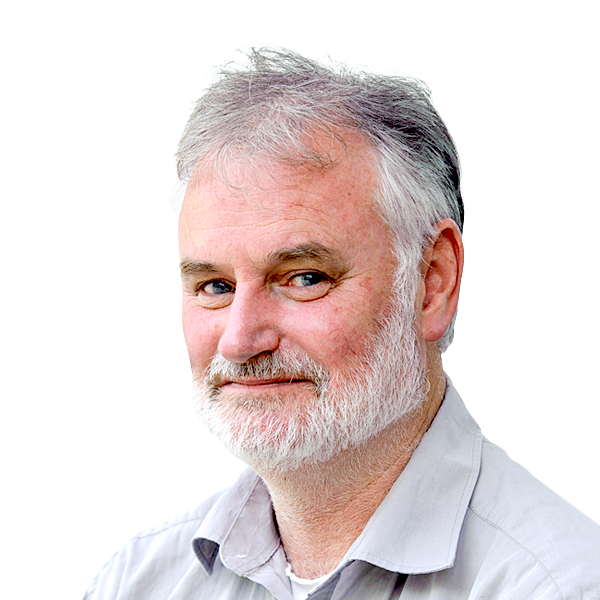
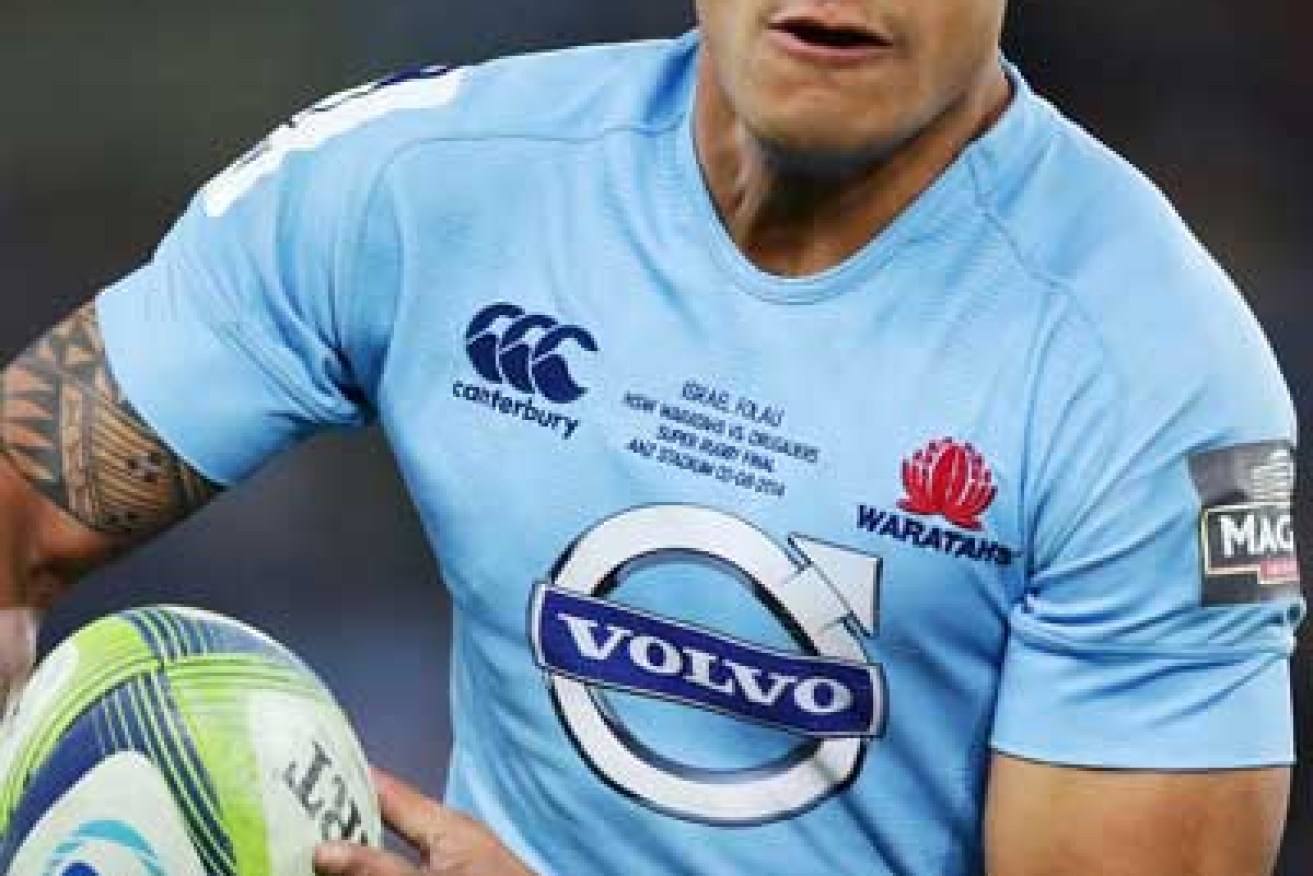
Israel Folau's switch from the AFL to Super Rugby has been a rousing success. Photo: Getty
Karmichael Hunt’s gone back to rugby and everybody’s feeling a bit ripped off.
First Jason Akermanis wrote dismissively in The New Daily of Hunt’s time at the Gold Coast Suns.
Tim Lane in The Sunday Age reckoned Hunt was paid an “obscene” amount and robbed of his best rugby years.

Dressed for business: Karmichael Hunt will join Super Rugby club the Queensland Reds. Photo: Getty
And AFL legend Leigh Matthews dismissed the poaching of Hunt and Israel Folau as an “ill-advised, ill-fated experiment” and not worth the money. “I hope it never happens again,” Mathews told 3AW listeners.
• AFL beware: Villa, oil money and the new world order
• Buddy business and why he’s right for Sydney
Akermanis has been unfairly maligned for some of his comments on the game. But on this occasion, Aker, can Hunt’s career at the Suns be dismissed with a mere “thanks for nothing”?
The AFL competes in an increasingly competitive football market to which many in the Melbourne footy fishbowl seems oblivious.
North of Wagga nobody gives a stuff about Buddy, the Pies or Rioli’s hamstrings, unless they are displaced Victorians.
For his services, Hunt deserves every buck in his contract for his time at the Suns, and so too does Folau for his lesser stint at the Giants. As the AFL’s CEO Gillon McLachlan suggested, Hunt’s been “a huge success” and made an “important” contribution to the game.
However, Victoria and its southern footy colonies tend to downplay Hunt’s significance. He’s played at the top level in three codes. In his first season in Australian football he was named in the Courier Mail’s Queensland team of the year and won the most improved player trophy at the Suns. Hunt’s no mug.
He was just what the AFL and Queensland football needed: a crossover figure to sell rules in a rugby market. Australia is a fractured football market with four codes vying for the allegiances of 20 million plus people and a limited pool of sponsorship and broadcast rights dollars.
League and Australian football have cornered over 80 per cent of the market, with their billion dollar-plus deals. But in a growing multicultural society, soccer’s on the rise. Over the next few years it will challenge cricket’s hold on the summer sports market and attract greater overseas’ investment in local A-League franchises.
As Aker rightly points out, Hunt was overpaid for his 44-game career. But he and Folau were just what footy needed if it was going to crack the market on the other side of the so-called ‘Barassi line’.
Already the Abu Dhabi United Group, through its holding company City Football Group, has secured the majority shareholding in the old Melbourne Heart for a song, while Indonesia’s Bakrie Group own Brisbane Roar, and Russian oligarch David Traktovenko has stitched up Sydney FC.
There is no indication that the flow of international money into soccer will abate, and this will pose problems for other codes. As salary caps increase, more international names will enter the A-League, attracting sponsors and increasing broadcast rights’ deals.
Rugby union is the code under most threat.
Despite the efforts of the ARU’s CEO Bill Pulver, Australia’s Super Rugby franchises will find it difficult to keep name Wallaby players on their books after next year’s World Cup.
French Top 14, English and Japanese clubs have the funds to lure Australian players on salaries far in excess of what they receive Down Under.

Israel Folau’s switch from the AFL to Super Rugby has been a rousing success. Photo: Getty
Pulver has brought in the ‘sabbatical’ clause to stop the drift north. Under the clause, players of Folau’s calibre will be allowed to top up their Super Rugby and Wallaby salaries with highly paid, short-term stints in Europe and Japan.
But will this be enough? Pulver’s real challenge will be snaring a lucrative broadcast rights deal that allows Australian Super Rugby franchises to lift their salary caps and compete with their European and Japanese competitors. Otherwise the drift north will continue.
Despite Aker, Leigh and Tim’s misgivings, Hunt’s done more than his bit to promote the brand in this market, and the Suns and code are all the richer for it.
The AFL and NRL are currently on surer financial footings, though both are having trouble cracking the other’s market. Neither has made real ground, and Ian Turner’s Barassi Line remains a more significant divide than most state borders. North of Wagga nobody gives a stuff about Buddy, the Pies or Rioli’s hamstrings, unless they are displaced Victorians.
And therein lies the importance of Karmichael Hunt. As Aker rightly points out, Hunt was overpaid for his 44-game career. But he and Folau were just what footy needed if it was going to crack the market on the other side of the so-called ‘Barassi line’.
The current frontline is Sydney’s west. Beyond Parramatta lies the NRL’s heartland and soccer’s most promising market. Forget the AFL hype. GWS will struggle to cut it out in Minto where Folau comes from. It’s up against two of the most profitable brands in Australian sport – the NRL’s Bulldogs and Panthers.
To have any chance footy needs more Folaus and Hunts flogging the AFL brand in schools, shopping centres and the parks of Sydney’s west and Queensland. To be blunt, the Scullys, Wards and Abletts lack ‘street cred’ in Minto, Logan and the Gold Coast’s backwaters.
Hunt and Folau were paid handsomely because of this very point. They had ‘cred’. They were recruited not just to play rules, but to use their brands to promote the code in rugger heartlands.
What’s often forgotten is that in luring Folau and Hunt to Australian rules, the AFL had to at least match the players’ rugby contracts. As both were highly sought after, the AFL had to pay above their rugger market values.
Before joining the Suns in mid-2010 Hunt played for the Top 14 French club, Biarritz. His last game was the Heineken Cup final at Stade de France before almost 80,000 fans. Hunt scored Biarritz’s only try in its 21-19 loss to Toulouse. Within two months he was playing for the Suns in the VFL at Craigieburn. Four years later he leaves the code as one of Australia’s most versatile and gifted footballers.
He and Folau were not recruited solely for their football ability, but to plug the AFL brand in rugby territory. In marketing terms, Hunt’s been an ornament to the Suns and AFL brands. With Folau he’s helped put the game on the back pages of Sydney and Brisbane papers at a time when the Suns and Giants were the AFL’s easy beats and struggling to gain footholds in rugby markets.
This is often forgotten by the southern states’ footy commentariat. In focusing on the Melbourne footy fishbowl, they ignore the broader market in which the AFL competes. Despite Aker, Leigh and Tim’s misgivings, Hunt’s done more than his bit to promote the brand in this market, and the Suns and code are all the richer for it.
Dr Tom Heenan lectures in sport studies at Monash University’s National Centre for Australian Studies.
